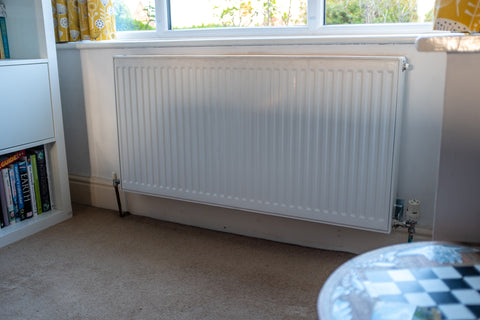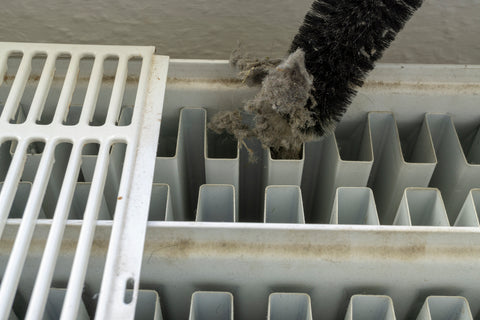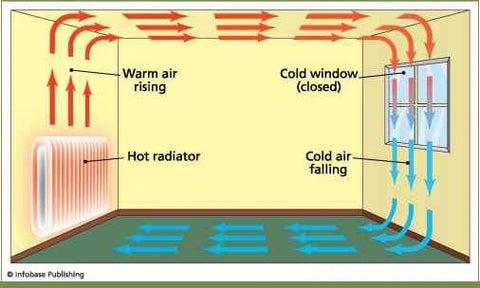
How To Clean White Radiators?
Why Do Radiators Get Dusty?
Radiators are of the many to-do-cleaning tasks that we don’t even think about when we want to keep on top our house cleaning!
A clean white dust-free radiator not only looks attractive, but it functions more efficiently!

If a radiator is left and you never clean it thoroughly, in time it will accumulate a significant amount of dust especially behind and in between the fins!
If you look behind the radiator you may not be very happy with what you see dust, cobwebs and other mysterious debris can easily find a home between the fins and not forgetting behind the radiator!
See Blogs:
How Much Dust Does a Radiator Give Off
Do Radiators Circulate Allergens
It is recommended to give your radiators a good deep clean at least once a year to clear away all that accumulated dust and dirt and stains!
Try and get into the habit when cleaning around the home to include your radiators regularly to keep them nice and white using a cloth and some warm water!
Remember a clean radiator helps to keep the heating costs down!
If the fins are dusty and dirty this will make your boiler work harder to keep the system warm!

See Blogs:
How To Remove Central Heating Radiators To Clean Behind
Circulation of Air in Your Home
When clean radiators heat the air, the hot air rises and when the hot air rises, the cold air then is drawn in beneath and through the radiator – which realistically means that your radiator essentially becomes a big hoover/vacuum drawing the air through the bottom and pushing out through the top.
The air is continually recirculated when the radiator is in use. The hotter the radiator the stronger the air currents as the heat intensifies the flow.

Every room in your house has a BTU rating which is the amount of heat output that the room needs to be sufficiently heated, the best way to get an accurate calculation would be to contact a local plumber.
If the output of the radiator drops too much, then you won't just feel uncomfortable. Your home will begin to accumulate moisture. Moisture that is being allowed to create humidity in your home which can then develop into mould issues around the home.
Remember if you have a build of dirt and dust in between the fins and behind the radiator – you may be inviting a damp problem that in time can only get worse if ignored!
NHS Cleaning Guidelines
The NHS frequency of cleaning is quoted as being ‘High-Risk Areas’ and one full clean a day, high-risk areas such as consultancy rooms, treatment rooms and any minor surgery may take place!
Low-risk areas such as storage rooms, meeting rooms require one full clean a month.
See Keele University Research Report – (Page 31 and Page 32)
Radiators and Their Relationship to Indoor Air Quality Issues
See Video - https://rotarad.com/pages/videos (Contour Testimonial)
How to clean the Radiator
- Always make sure you turn off the radiator and let it cool down before you start cleaning it
- To clean the dust away, it is recommended to use a vacuum cleaner, followed by then wiping down the radiator’s surfaces with a cloth and clean warm water.
Our video demonstrates a deep clean using a filter vacuum cleaner to remove all dust from inside and the back of the radiator!
Conclusion
By having full access behind your radiators for periodic cleaning would be the ultimate solution to remove this unseen dust problem, keeping your radiator looking clean and white all over!
We at Rotarad recommend that by deep cleaning your radiators especially also behind, can help to prevent increased contaminated dust exposure levels in the air you breathe indoors during the winter months.
Did you know?
There are circa. 190 million radiators installed across the UK of which a high proportion are not cleaned putting occupants at increased risk of allergic reactions.



